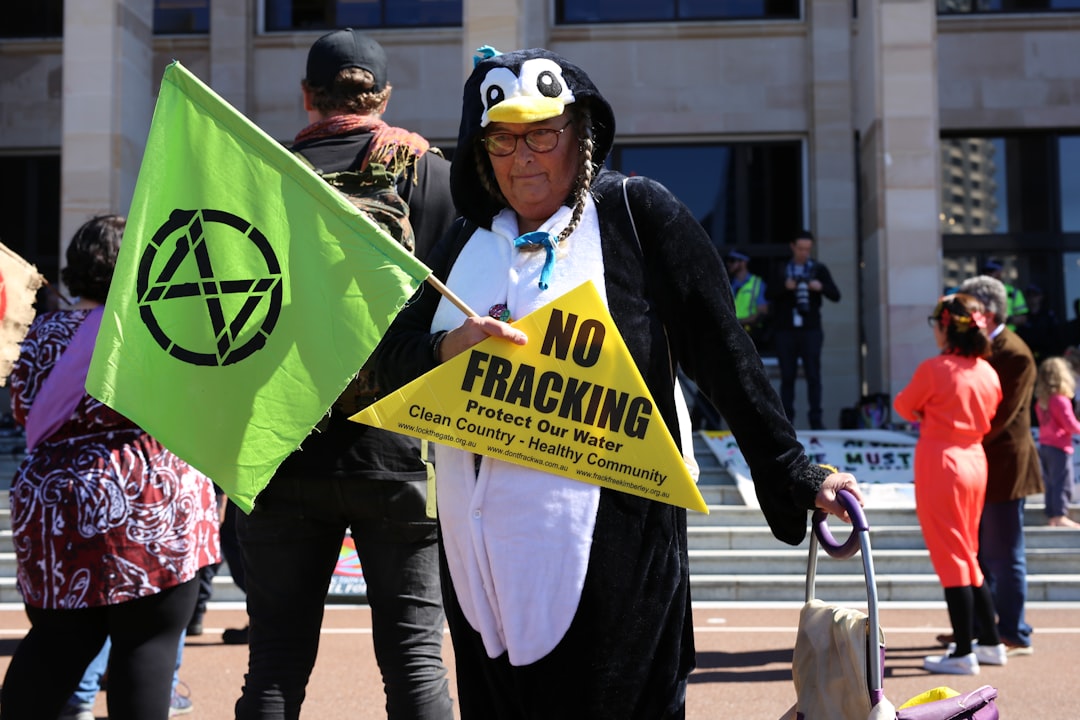Drill, baby, drill!
Prick your ears and you just might be able to hear it.
Somewhere in the distance a faint voice is shouting: “Bohr, Schätzelein, bohr!”
Yes, that’s right, in the midst of the worst energy crisis since the 1970s German journalists and politicians are beginning to remember that the country has vast reserves of shale gas hidden deep beneath its surface. Some are making the first tentative calls to “drill, baby, drill.”
“Anyone who wants to free themselves quickly from Russia's clutches must cast off their ideological blinkers: this applies to nuclear technology as well as to fracking,” wrote Malte Lehming, a journalist with the Berlin-based Tagesspiegel newspaper.
The Wirtschaftswoche, a business newspaper, was somewhat more forthright: “We need German fracking gas urgently!” it shouted.
Industry lobbyists have called on the government to consider extracting shale gas in order to make sure factories can keep running.
And our old friend Markus Söder, state leader of Bavaria, also got in on the act. Calling for an “open debate”, Söder demanded to know: “What reserves have we got and what can we use?”

Estimates of German shale gas reserves range from a conservative 230 billion cubic metres (government estimate) to a much more optimistic 2.3 trillion cubic metres (industry estimate).
Given that Germany consumes roughly 90 billion cubic metres of natural gas every year - roughly half of which is imported from Russia - these reserves are potentially a perfect fix for the pickle Germany finds itself in.
Industry experts say that the moth-balled infrastructure could quickly be put back into operation, meaning gas would start flowing within weeks.
The only problem is that this fossil fuel wealth can only be accessed by employing a method known as “hydraulic fracturing” - fracking for short - which the German government banned in 2012 under intense pressure from environmentalists.
Due to the influence green NGOs have over German public opinion, fracking (or “frecking” in German) is almost akin to a swear word. Along with chlorinated chicken, it is used as shorthand for everything that is wrong with American capitalism.
Just how enlightened Germans are compared to their friends across the pond is open to question though. There have been reports in the German press this week that these same green NGOs received millions from the Kremlin to trash talk fracking.
According to expert opinion, fracking isn’t nearly as dangerous as most Germans seem to believe.
The Wirtschaftswoche interviewed Moh’d Amro a specialist on gas exploitation at the Technical University of Freiburg.
This is what he had to say:
“We actually used fracking in Germany between 1961 and 2012. We carried out a total of around 500 fracks and I don't know of a single case where there was a problem or an environmental accident. In fact, we have an important safety advantage in Germany. The deposits are located extremely deep under impermeable layers of rock. We can be pretty sure that no uncontrolled fluids will reach the surface.”
The Federal Institute for Geosciences and Natural Resources agrees. In a 2016 report on German shale gas reserves it described the public’s fears about extraction as “exaggerated.”
Pointing to surveys which show that most people fear contamination of their drinking water, the report stated that fracking is only permitted at depths where the ground water is undrinkable anyway due to a high salt content. “The deep ground water doesn’t mix with groundwater near the surface,” the report added.
But, whether scientists see it as safe or not, German shale gas is unlikely to make an unexpected comeback. The ideological crust of the governing parties is too impermeable to make that an option.
As much as the three governing parties have said that the Ukraine war has led them to rethink old assumptions, they are all still dug into their ideological trenches.
While the Free Democrats refuse to contemplate autobahn speed limits - even temporary ones - to reduce oil consumption, the Greens are sticking their fingers in their ears when conversation turns to shale gas.
The Green’s Bundestag faction leader Anton Hofreiter took to the telly this week to put forward the case for an immediate embargo on Russian gas. Asked by the presenter whether shale gas could be part of the answer, he brushed off the question with the comment: “our gas reserves won’t help us at all.”
That’s not how Prof. Moh’d Amro sees it. He told the Wirtschaftswoche that Germany could “relatively easily” increase domestic production from 5% of its overall needs to 10% to 15% by updating current infrastructure.
In the best case scenario, these reserves could contribute to German gas needs for years to come. As I have previously reported, natural gas is crucial to Germany’s Energiewende due to the fact that gas-fired power stations can be fired up quickly at times when weather conditions don’t suit renewables.
Then again, Germany can always buy in expensive liquified shale gas from abroad. As is the case in so many spheres, Germany likes to export the risk. But that comes with costs too.


